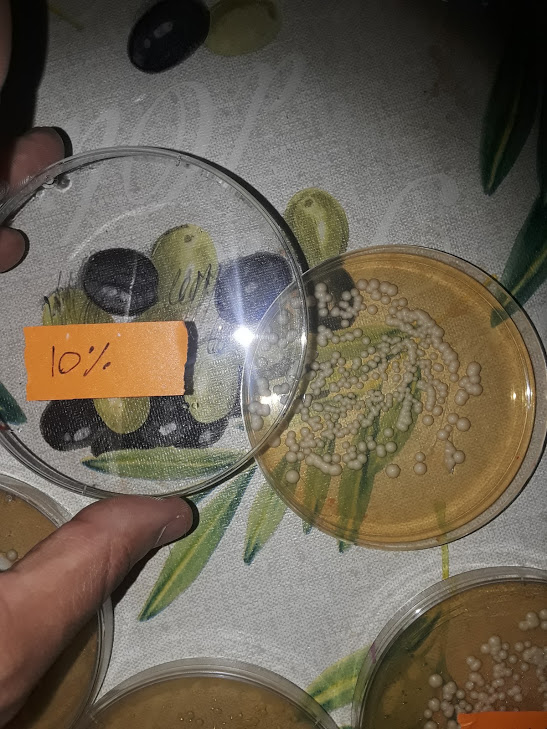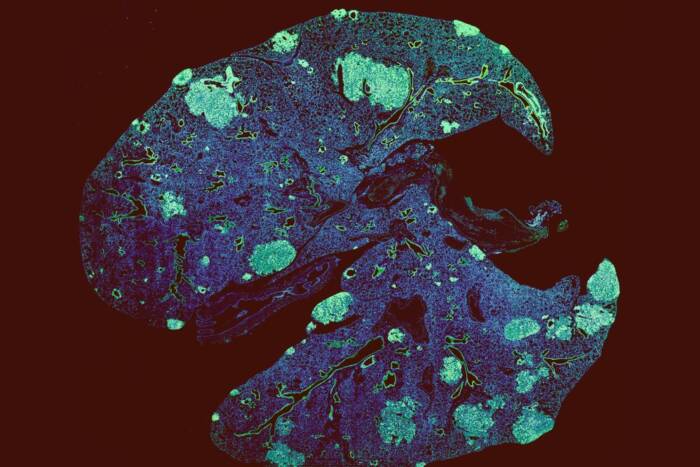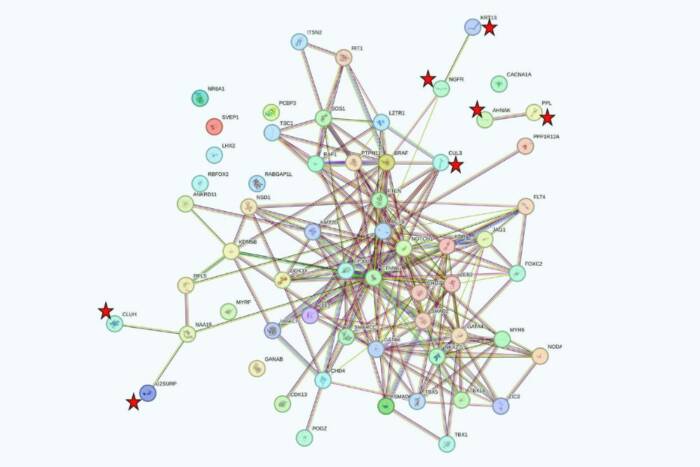When the city locked down, RockEDU moved the lab bench to the kitchen table

SSRP Student Kevin Bautista captured this photo of yeast he cultivated at home over the summer.
When the pandemic set in this spring, Rockefeller’s science outreach team sprang into action. With the city locking down, their Summer Science Research Program for high-school students had to be quickly reimagined for an online format—and how to make it happen was less than clear. The seven-week-long program usually takes place in labs across campus, with an emphasis on hands-on experiments and interactive demos. Now its students would be participating from various locations, with no access to lab equipment.
But with input from participating students and scientists who volunteer with RockEDU, a blended SSRP model soon began to take shape. The result was a modified SSRP curriculum with five experiential research tracks, complete with lab supply kits that were mailed to students’ homes. RockEDU also established teams of virtual mentors, a full schedule of lectures and discussions covering core scientific principles, along with an online platform for the young science enthusiasts to talk to one another and their educators.
In one of the research tracks, students studied symbiosis in a protocol that involved harvesting yeast growing on weeds and trees in their backyards or neighborhoods. They then cultivated the yeast in their homes, performed a DNA isolation protocol, and mailed their samples back to Rockefeller for DNA sequencing. Ultimately, they were able to ask questions about how evolution takes place across genomes and were able to develop basic lab skills like plating yeast and analyzing images and data. In other tracks, students cultured their own yogurt and examined its bacterial diversity. Those interested in neuroscience studied the behavior of ants extracted from in-between sidewalk cracks, or inspected the cryo-EM structures of the brain plaques characteristic of Alzheimer’s disease. There was also a bioinformatics track in which students analyzed mutations in SARS-COV-2, the virus that causes COVID-19.
Each protocol and supply kit were designed to fit in a variety of circumstances and homes: Some students were in crowded city apartments with siblings, for example, while others were vacationing away from their homes. In total, 63 students participated in the program.
The new curriculum was also flexible enough to accommodate conversation about current events. When worldwide demonstrations for social justice transpired over the summer, RockEDU led discussions on diversity, equity, and inclusion in science, using a New York Times article on inequality in education during the pandemic as a conversation starter.
“The students really ran with it” said Odaelys Walwyn-Pollard, a RockEDU scientist-educator. “We realized this generation is socially aware, which allowed us to create a receptive environment to discuss inequities. Our goal was really to make sure all the students felt they belong here.”


